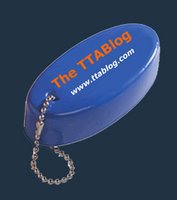TTAB Remands Failure-to-Function Refusal to USPTO for Consideration of Descriptiveness and Deceptiveness
Applicant Litehouse, Inc. filed an appeal from a failure-to-function refusal of the proposed mark VEGGIES IN EVERY BITE for "pasta, macaroni and cheese, pasta sauce, pizza, pizza crust, croutons, frozen meals consisting primarily of pasta or rice." The Board, perhaps fed up with the steady stream of such refusals, suspended the appeal and remanded the application to the Examining Attorney for further examination. In re Litehouse, Inc., Serial No. 97501419 (November 8, 2024) [not precedential] (Opinion by Judge Angela Lykos).
The Office maintained that VEGGIES IN EVERY BITE “is so widely used by numerous third parties to convey a message that food is nutritional such that it fails to function as a trademark under Sections 1, 2, 3,2 and 45 of the Trademark Act, 15 U.S.C. §§ 1051, 1052, 1053, 1127."
Rule 2.142(f)(1) provides: "If, during an appeal from a refusal of registration, it appears to the Trademark Trial and Appeal Board that an issue not previously raised may render the mark of the appellant unregistrable, the Board may suspend the appeal and remand the application to the examining attorney for further examination to be completed within the time set by the Board."
[T]he Board remands the application to the Examining Attorney to consider whether to:● refuse registration under Section 2(e)(1) of the Trademark Act, 15 U.S.C. § 1052(e)(1), on the ground that Applicant’s mark is merely descriptive of the identified goods;
● issue an information request pursuant to Trademark Rule 2.61(b), 37 C.F.R. § 2.61(b), asking Applicant relevant information about the goods, including, but not limited to, whether the goods will contain vegetables;
● refuse registration, if appropriate, under Section 2(e)(1) of the Trademark Act, 15 U.S.C. § 1052(e)(1), on the ground that Applicant’s mark is deceptively misdescriptive; and
● refuse registration, if appropriate, under Section 2(a) of the Trademark Act, 15 U.S.C. § 1052(a), on the ground that Applicant’s mark is deceptive.
(Emphasis supplied).
The procedure following remand is laid out in Rules 2.142(f)(3) and 2.61-2.63. Ultimately, if one or more new refusals is/are made final, the case will return to the Board for further appeal briefing, etc.
The Examining Attorney is reminded that the scope of the remand is limited solely to whether to also refuse registration on the additional grounds summarized above. The Examining Attorney should not issue a new ground for refusal or requirement not specified in this order, nor should the Examining Attorney supplement the record on other issues or advance any new arguments regarding the original refusal. See TBMP § 1209.01. Likewise, Applicant’s response to any nonfinal Office action issued on remand must be limited to the matters raised in that Office action.
Read comments and post your comment here.
TTABlogger comment: Earlier this year, in the ZPILE case, the Board suggested that the Office should have applied the "distinctiveness continuum" rather than a failure-to-function approach in light of the evidence before the Board. TTABlogged here.
Text Copyright John L. Welch 2024.




























